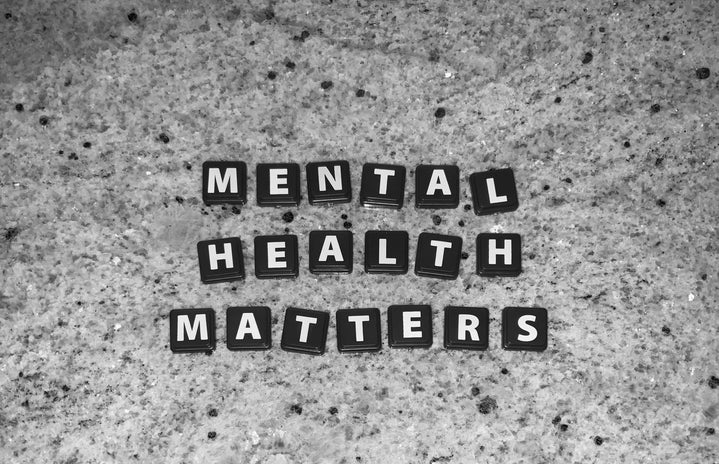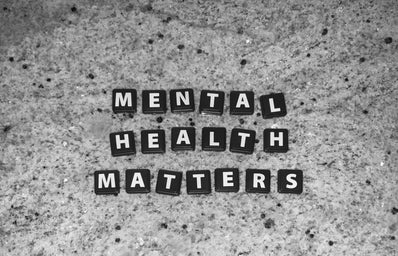Content Warning: discussion of symptoms and risk factors associated with BPD
Experiences are the author’s own
BPD, also known as borderline personality disorder, is a mental disorder that causes those who have it to have unstable mood swings and difficulty regulating emotions. It is a personality disorder that is not very well understood but, considering that over 4 million people in the United States per year are diagnosed with the disorder, learning more about the causes and effects of the disorder may help you better understand and interact with those around you who have BPD.
With my personal experience living with BPD, my personality tends to confuse many of my friends and family in my life. Because of my intense and unstable moods that quickly change, those close to me find it hard to communicate with me and feel the need to “walk on eggshells” around me. They are unsure how I will react to something they perceive as neutral. Living with BPD makes it hard for me to maintain relationships with others, and having difficulty with relationships is one of the key symptoms of BPD. But what you may not know is the reason people with BPD have a hard time maintaining relationships because they often live in a different reality than the people around them.
My friend once told me that I view her completely neutral actions as an attack against me. It is interesting to think about how I perceive something that she does in her normal everyday life as something she is purposefully doing to hurt me. I struggle to maintain relationships when I genuinely perceive that people are trying to hurt me, and they get confused because they have no idea why I view their actions in that way. While this is not true for everyone with BPD, this symptom of altered perceptions of reality has been a large part of my experience with the personality disorder and is something to consider when interacting with those you may know who have BPD.
Some other symptoms that affect people with BPD’s relationships include patterns of swinging intensely between idealization and devaluation of friends, families and loved ones and avoiding abandonment at all costs by either jumping into an intimate relationship fast or by cutting off ties quickly in anticipation of being abandoned. Other people with BPD, including myself, often have distorted views of reality and perceive a deep bond with someone they barely know or anticipate someone close to them wanting to abandon them, even when this is not the case. This perception of what other people want often stems from an irrational fear of other people’s intentions, which is another symptom of BPD. Ultimately, because we perceive the world differently from reality, people with BPD often get caught in their head regarding what the other person in the relationship is doing, which leads to distrust and the breakdown of that relationship.
Disharmony in relationships with others is not the only effect BPD has on relationships. People with BPD often struggle to trust themselves. One day they can have a very distorted view of themselves and feel like they are cut off from themselves, while the next day they have a more grandiose perception of themselves and believe they can do no wrong. A lot of times I will describe my feeling of being cut off from myself as an out-of-body experience where I feel like I’m living in an alternate universe. In other words, some days I don’t feel real or like I am living in reality—almost like I am in a dream-like state. This is something that is intensely confusing for me because when this happens, I feel suffocated by so many conflicting emotions and that they do not matter to anyone at all because I don’t see myself on the same plane as other people. This causes me to feel isolated, alone and depressed. Having BPD makes it easy to develop other mental health disorders such as depression or anxiety like I have.
No one really knows the cause of borderline personality disorder, but family history, brain structure and function or a traumatic life event or childhood are risk factors associated with the development of BPD. People who have a family member with BPD are more likely to develop the personality disorder. In addition, people without any of these risk factors can still develop BPD.
One of the most prominent therapies associated with treating BPD is Dialectical Behavior Therapy (DBT). You can practice this in a group therapy setting or through reading a DBT workbook as I am currently doing. DBT helps people with BPD become self-aware about their actions in the moment and take steps to recognize irrational reactions and responses before acting on them. It essentially helps with practicing emotional mindfulness preemptively.
I have always personally felt that increasing awareness on mental health topics and mental health disorders increases communication surrounding mental health. I spend a lot of time educating myself on mental health topics to better understand and communicate with people. Learning about BPD could help you maintain relationships with friends or family that you have a difficult time connecting with due to their personality disorder or, even better, understand why they perceive things differently than you do.


